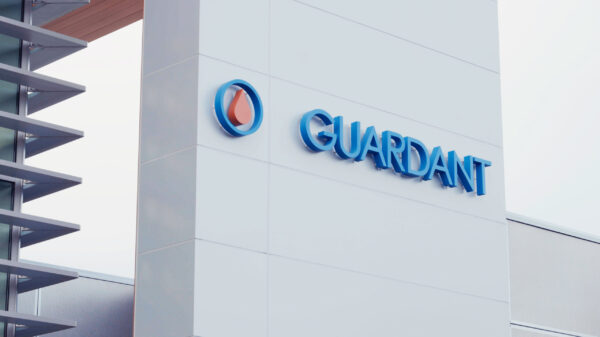Personalis Inc. (NASDAQ: PSNL) experienced a significant surge in its stock price today, primarily due to two major developments announced by the company.
On Monday, pharmaceutical giant, Merck (NYSE: MRK), announced the investment of approximately USD$50 million at USD$3.56 per share in a private placement. This comes at the same time that Moderna Inc (NASDAQ: MRNA) and Personalis elected to extend its collaboration. Personalis shares rose close to 50 per cent on the news, with a range of USD$3.81 to USD$5.30 per share.
This investment will give Merck ownership of about 16.5 per cent of Personalis’ total float. This translates into around 14 million shares.
This infusion of capital from a major pharmaceutical player like Merck provides Personalis with significant financial support. It also signals strong confidence in the company’s future prospects to the market.
This move by Merck could be seen as a validation of Personalis’ business strategy and its potential in the cancer treatment space.
Furthermore, the extension of the collaboration with Moderna allows Moderna to continue using Personalis’ NeXT Platform in upcoming clinical studies related to their investigational personalized cancer vaccine, mRNA-4157/V940. This study is also in collaboration with Merck.
This extended collaboration underscores the ongoing demand for Personalis’ technology in the development of advanced cancer therapies, further bolstering investor confidence in the company’s technological capabilities and market relevance.
“Individualized therapies have the potential to transform cancer care,” said Chris Hall, CEO of Personalis.
Read more: Breath Diagnostics onboards new president and closes critical financing
Read more: Breath Diagnostics pioneers novel lung cancer breath test
Personalis and Tempus AI bring minimal residual disease testing to market
These developments have led to a surge in investor interest, reflected in the stock’s performance. The combination of strategic investment and extended high-profile partnerships with industry giants like Merck and Moderna has likely reassured investors about Personalis’ growth trajectory. This is what likely lead to the stock’s significant increase in value today
This comes on the same day Personalis and Tempus AI Inc (NASDAQ: TEM) decided to expand their commercial relationship.
The companies first agreed to collaborate in November 2023 to bring ultra-sensitive minimal residual disease (MRD) testing to market. They then launched their efforts at the 2024 American Society of Clinical Oncology (ASCO) Annual Meeting.
MRD refers to the small number of cancer cells that may remain in a patient’s body after treatment, which can potentially lead to relapse or disease progression.
Under the expanded partnership, Tempus will serve as the exclusive commercial diagnostic partner for Personalis’ ultra-sensitive tumour-informed MRD product, NeXT Personal Dx. This will focus on broad patient adoption in breast and lung cancers and immunotherapy monitoring across all solid tumors.
.














